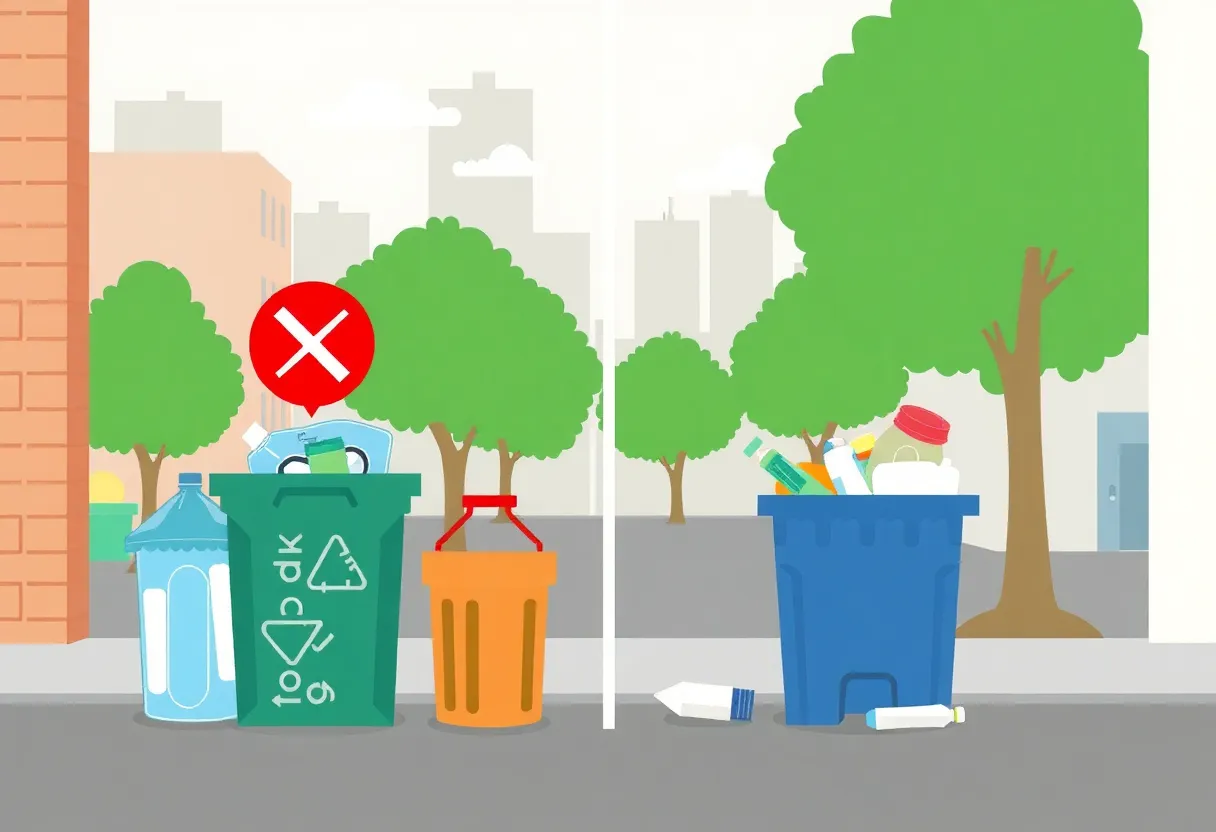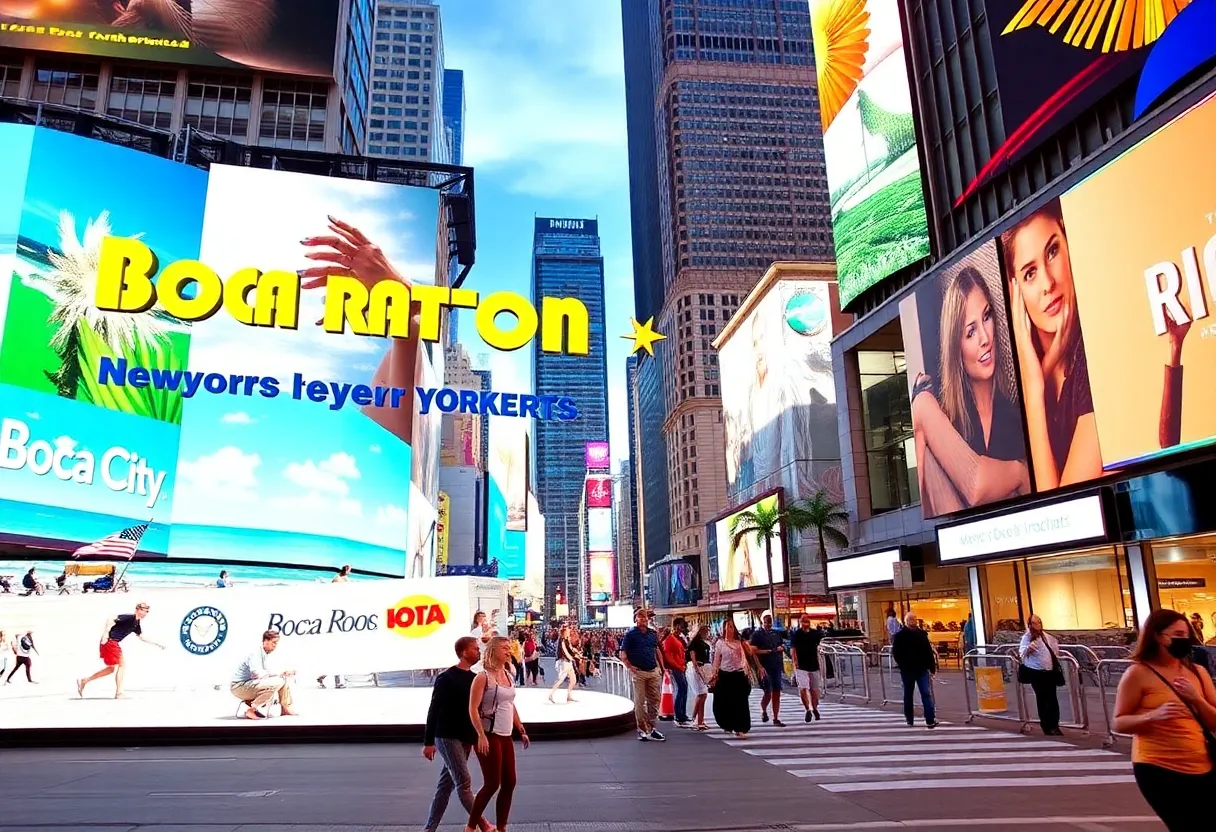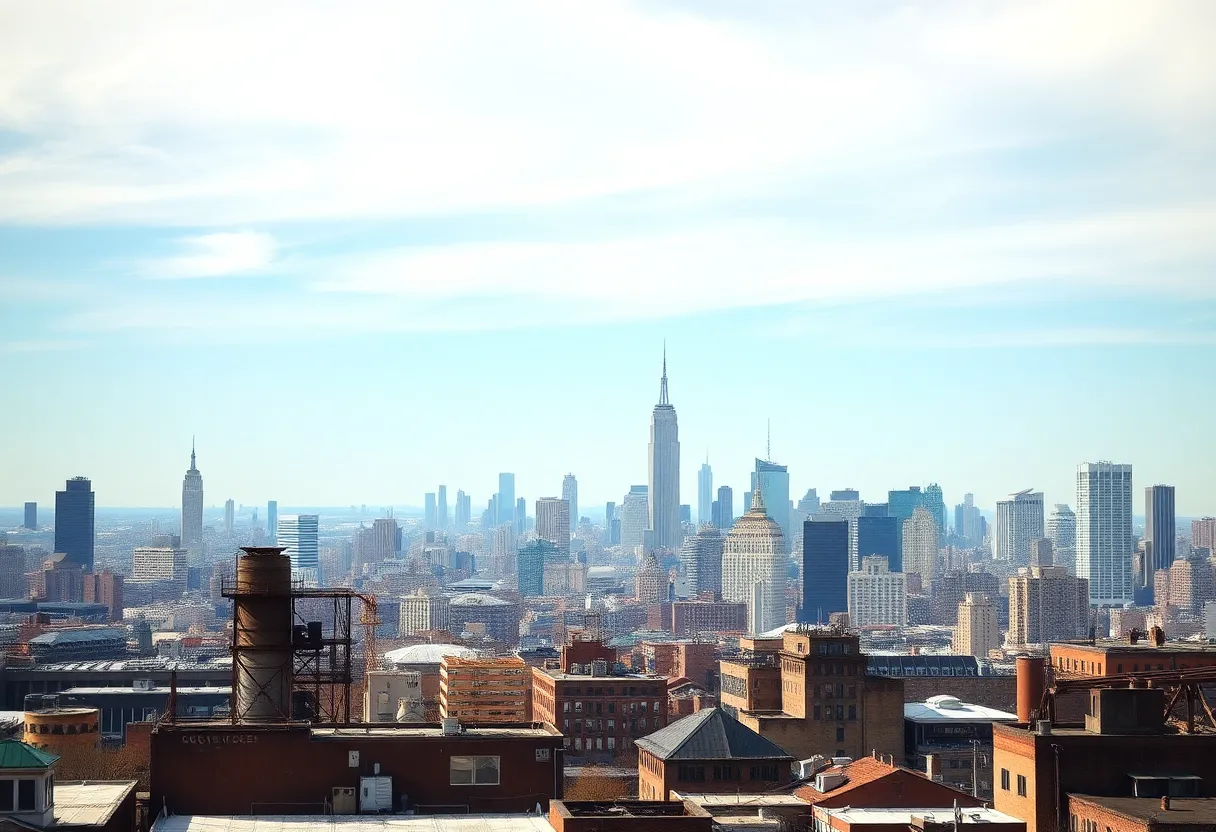News Summary
New York City business groups propose the Affordable Waste Reduction Act as an alternative to the Packaging Reduction and Recycling Infrastructure Act. This new initiative aims to address plastic waste management without rigid regulations. It introduces a concept called extended producer responsibility (EPR), where companies pay fees based on their packaging waste. Supporters argue it will effectively reduce plastic waste without imposing strict mandates, while environmental advocates express concern that it may dilute necessary waste reduction efforts in the state.
New York Business Groups Propose Alternative to Packaging Reduction Bill Amid Ongoing Plastic Waste Debate
New York City – The chemical industry is proposing a new legislative framework to address plastic waste management in New York as a counter to the Packaging Reduction and Recycling Infrastructure Act, a bill designed to mitigate plastic pollution. This new initiative, known as the Affordable Waste Reduction Act, is being pushed by various business groups as an alternative approach to reducing waste without imposing rigid regulations on companies.
The Affordable Waste Reduction Act introduces a concept termed “extended producer responsibility” (EPR). Nevertheless, this act is considered less prescriptive compared to the initial bill. Supporters of the Affordable Waste Reduction Act assert that it will effectively curtail plastic waste while avoiding stringent mandates. Under the provisions of this act, companies responsible for packaged products will incur fees based on the volume of packaging waste they generate, encouraging businesses to maintain lower packaging levels.
In contrast to the original Packaging Reduction and Recycling Infrastructure Act, which has successfully cleared the Senate yet awaits approval from the Assembly, the Affordable Waste Reduction Act does not impose fixed quotas for reducing packaging waste or ban harmful ingredients in products. This new act also exempts business-generated waste, which is estimated to represent approximately 20% of New York’s total waste output.
Key proponents of the original bill, such as Senator Pete Harckham and Assemblymember Deborah Glick, have expressed concerns that this new proposal may undermine their legislative efforts to combat plastic waste. Meanwhile, nearly 40 companies and business organizations have endorsed the Affordable Waste Reduction Act, indicating a substantial coalition of support behind this alternative legislative measure.
Environmental advocates, however, are skeptical about the efficacy of the Affordable Waste Reduction Act, arguing that the alternatives presented by the chemical industry primarily serve to sustain existing plastic production rather than reduce it. They contend that the new approach may dilute the impact of necessary waste reduction efforts, further complicating New York’s ability to address its plastic pollution crisis effectively.
The role of the chemical industry has become increasingly prominent in the legislative discourse surrounding waste management. The industry has heavily lobbied for the Affordable Waste Reduction Act, going so far as to organize tours of a North Carolina plant to demonstrate innovative recycling technologies, despite existing environmental violations at that facility. Significant commercial backers of this proposal include major corporations such as ExxonMobil and Shell, leading to questions about the motivations behind the push for alternatives to stricter regulations.
In addition to the ongoing discussions regarding plastic waste, other legislative measures are in development, including a proposal to raise the bottle deposit rate to incentivize recycling efforts. The Albany legislative environment is further complicated by competing bills and a tightened timeline caused by state budget delays.
Further complicating matters is the financial support provided by the Business Council to multiple Assembly sponsors of the Affordable Waste Reduction Act during their prior campaigns. This has raised potential concerns over conflicts of interest, highlighting the intricate relationship between business funding and legislative decision-making processes.
As discussions progress, various business groups advocate for the Affordable Waste Reduction Act, arguing that ambitious waste reduction regulations may inadvertently lead to increased costs for consumers, a sentiment that diverges from the public’s expectation of minimal waste-related fees. The debate surrounding plastic waste in New York continues, revealing the complexities of aligning industry interests with environmental sustainability.
Deeper Dive: News & Info About This Topic
HERE Resources
New York City Implements Mandatory Composting Program
Additional Resources
- Spectrum News: Bill Aimed at Reducing Plastic Packaging Waste Passes N.Y. State Senate
- Wikipedia: Plastic Pollution
- CBS 6 Albany: New York State Senate Advances Bill to Cut Plastic Packaging by 30%
- Google Search: New York plastic packaging reduction
- Newsday: Environment State Legislature Recycling Heat Act
- Encyclopedia Britannica: Recycling
- City & State NY: Plastic Packaging Reduction Bill Once Again Post-Budget Priority
- Google News: Plastic Waste Legislation in New York








